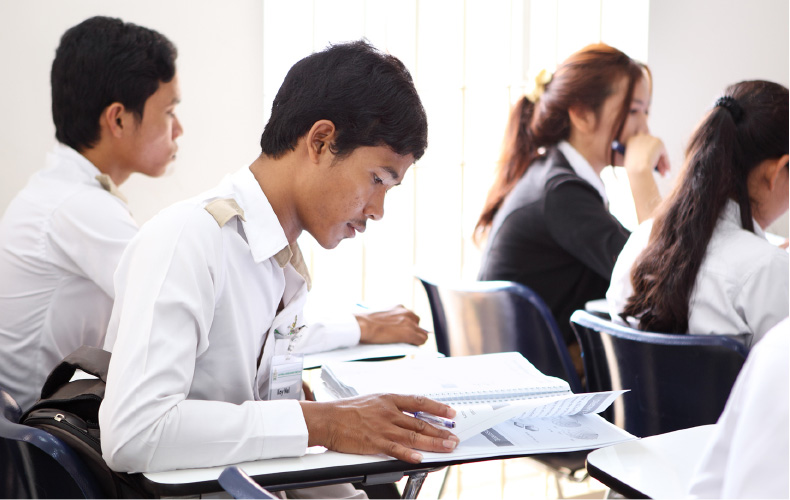
KSIF designates preliminary KSI in Azerbaijan and Cambodia
Korean language program operated in collaboration with local Korean university and supported for up to 2 years
Korean language programs fostered in regions that require KSI. New designation applications encouraged

▲ Learners at Royal University of Agriculture in Cambodia, designated as a preliminary KSI
King Sejong Institute Foundation (hereinafter referred to as KSIF; President: Kang Hyounhwa) will designate a preliminary KSI and commence management support for the first time.
KSIF announced on August 7th that it would designate Duksung Women’s University and Inha University as implementing institutions for preliminary KSI management. Duksung Women’s University will manage a preliminary KSI from July in collaboration with Royal University of Agriculture in Phnom Penh, Cambodia and Inha University with Baku Polytechnical University in Xirdalan, Azerbaijan.
The preliminary KSI designation and management is a new form of business that supports the establishment of Korean language programs in cooperation between a local university and Korean university in regions that require KSIs. The Korean university supports Korean language teachers locally and the local university provides infrastructure such as educational space. KSIF provides support for operational costs such as teachers’ labor to institutions designated as preliminary KSIs for up to 2 years maximum. The designated institution has to participate in the designation of new KSIs.
Min Bohyeon, KSI Support Department assistant manager, stated that “The business of supporting preliminary KSIs in regions where there is demand for Korean language education but insufficient supply is expected to act as priming water for KSI management” and “Based on the successful management of preliminary KSI business, various further enterprises will follow in order to address blind spots in Korean language education”.









